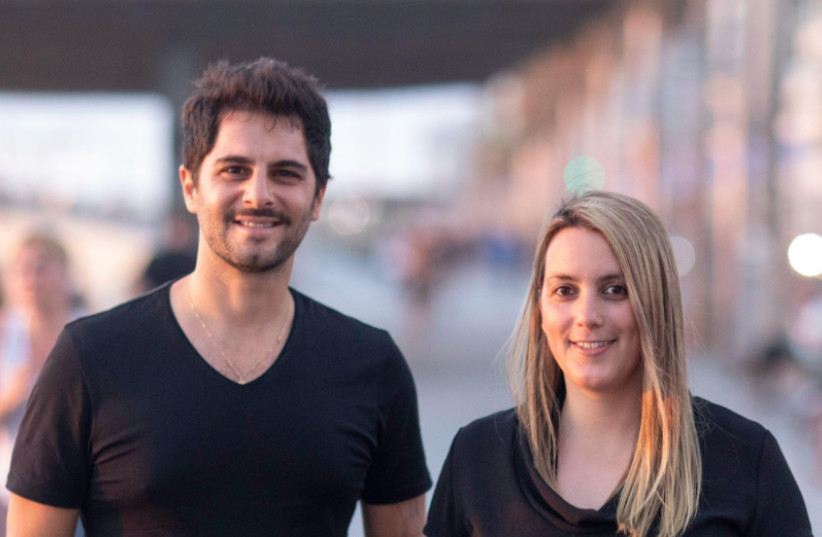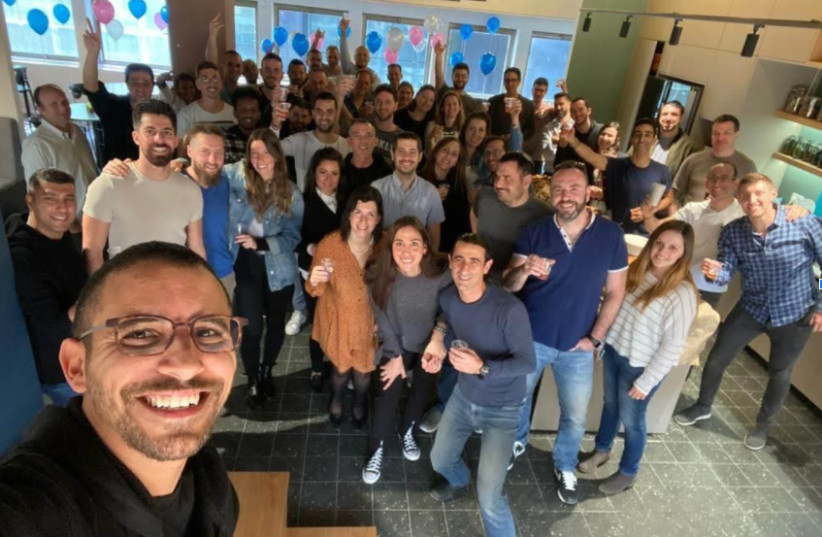With so many Israeli hi-tech companies competing to attract workers, start-ups are getting creative in their recruitment attempts.
The labor force is currently lacking some 13,000 to 20,000 engineers and hi-tech personnel, with 60% of hi-tech firms reporting difficulties in hiring appropriate staff.
Salaries around Israel are skyrocketing as companies, flush with cash from a record-breaking year of fundraising, are doing whatever they can to find the talent to help them achieve growth targets. Firms are paying NIS 25,000 per month and more for data scientists just out of university, and even non-tech jobs like marketing and administration are paying better than ever before. Average salaries for some positions have risen more than 30% in recent months, according to Compete, which compiles real-time data about employee salaries and benefits for more than 200 companies in Israel.
But even with inflated paychecks, attracting the attention of potential hires is still a challenge for many. The roads and bus stations around Tel Aviv are cluttered with billboards from recruiting companies, each trying to show that it is the most fun place to work. Autonomous drone company Percepto, for example, is running a campaign in train stations showing its drone flying above the famous robot dog Spot by Boston Dynamics, looking to hire developers who believe “traffic jams are low tech.”
Others are trying more creative approaches.
CodeValue, which provides software and cloud solutions, has launched an intensive three-month training camp where people – even without tech experience – can pay to gain valuable work skills, with the Herzliya-based company getting the first pick of employees. At the end of the course, graduates are brought into the company to be considered as potential employees.

“Because of the difficult recruiting battles in hi-tech, we decided to embark on a venture in which we prepare the next generation of technologists ourselves,” said Tali Shem Tov, the company’s CEO and co-owner. “This program is unique in that it allows even inexperienced people the opportunity to enter hi-tech, and the vast majority of applicants who come to TechCamp also complete it successfully. Our graduates are sought-after candidates in most technology companies in Israel, and sometimes even around the world.”
Tefen, an international management consulting firm, has adopted a speed-dating approach toward recruitment to speed up the hiring process. After receiving a presentation about the company over breakfast, candidates are invited for an intensive day of speed interviews and tests.
At the end of the day, successful candidates are offered an employment contract on the spot, with a signing bonus for anyone who signs on immediately.
“We offer a ticket to the world of business and strategic consulting in a leading company in its field in Israel, with over 40 years of experience,” said Tefen CEO and owner Mally Bitzur-Parnes.
“We are in a constant process of finding quality employees, and we realized that the best way to do this is through a short and focused one-day process where we locate and close with the right workers.”

Snappy, which offers a platform for sending corporate gifts, offers a “friend brings a friend” program in which anyone recommending someone who is hired is given a voucher for NIS 10,000 worth of gifts from its catalog. The company will also donate NIS 5,000 to the charity of their choice.
“What is unique here is that this program is not only available to company employees, but anyone who makes a successful referral,” a company representative explained.
Lightrun, whose platform helps developers debug their code easily, holds monthly social media workshops for employees to help them find ways to become better brand ambassadors on LinkedIn and Instagram.
“We do brainstorming workshops together to help employees find their inner voice,” said Gal Schur, Lightrun’s HR official. “The goal is to convey to future candidates some of the real day-to-day experience of people in the office.”
Other companies, like marketing analytics company AppsFlyer and website-building platform Duda, are sharing videos made by employees on TikTok and LinkedIn to advertise the culture of the company in an authentic way, while also giving employees a fun creative outlet.
“We love using TikTok because it is a great platform for a funny, cool 15-second video that looks natural, not produced. We produce a lot of videos just showing the day-to-day vibe in the office,” said Daniel Cohen, AppsFlyer’s talent marketing specialist. “We don’t use Facebook in our strategy, because that’s more for older people. Our videos have more than 100,000 views, and a lot of the people who come in for interviews say they saw the videos.”
To help close the deal with candidates that have come in for interviews, digital signature company Lightico has developed an interactive tool that allows candidates to experience how their position would improve the lives of customers in different markets and understand exactly what their potential contribution to the company would be.
“Due to the high global demand for a solution, we are looking to double the number of our employees from 100 to 200 in the coming year,” said Zviki Ben-Ishay, co-founder and CEO of Lightico. “It is clear that billboards and advertisements on television do not display such messages. From candidates’ responses, we have seen that their experience with the solution does affect their considerations.”
Other companies are focused on making the recruiting experience as easy as possible for candidates.
“At Upstream Security, we place a great emphasis on the recruitment experience, said Chen Arad, head of Upstream’s HR department. “It is essential that every candidate, even those who are not suitable for the position, experience a positive, respectful and professional process.
“We personally read all the résumés that come to us through various channels. We bring final candidates to meet with the teams in the company who will actually work with them or manage them. It is essential that the candidate integrates well with his colleagues and team members.”
SQream, a hybrid data analytics platform, has created a number of initiatives to attract new hires and retain workers, such as its annual Amy Award event, named after CEO and founder Ami Gal, where employees can be crowned champion in a number of entertaining categories.
The competition is full of the openness and self-humor that is part of the company’s culture, and creates a buzz in the office without the formality of typical corporate galas, said VP of HR Saray Ben-Meir.
The company also recently launched a podcast called “The Next Step” in which employees describe their roles, as sort of a “day in the life” show about the company.
Finally, Centrical, which provides a gamification system that strengthens the relationships between employees, offers a special version of its system to its own workers to strengthen social bonds, encourage them to continue learning new job skills and increase loyalty to the company.
“A new employee who joins the company is entered in the system and receives solutions relevant to his job, providing feedback and asking questions.
“Then he presents himself in a video watched by everyone and receives support comments and suggestions for help.
“Also, personal events like birthdays are celebrated together,” said company founder and CEO Gal Rimon. “Personal events, as well as weekly competitions and fun events, are also celebrated together, which also help strengthen ties between the employees.”
